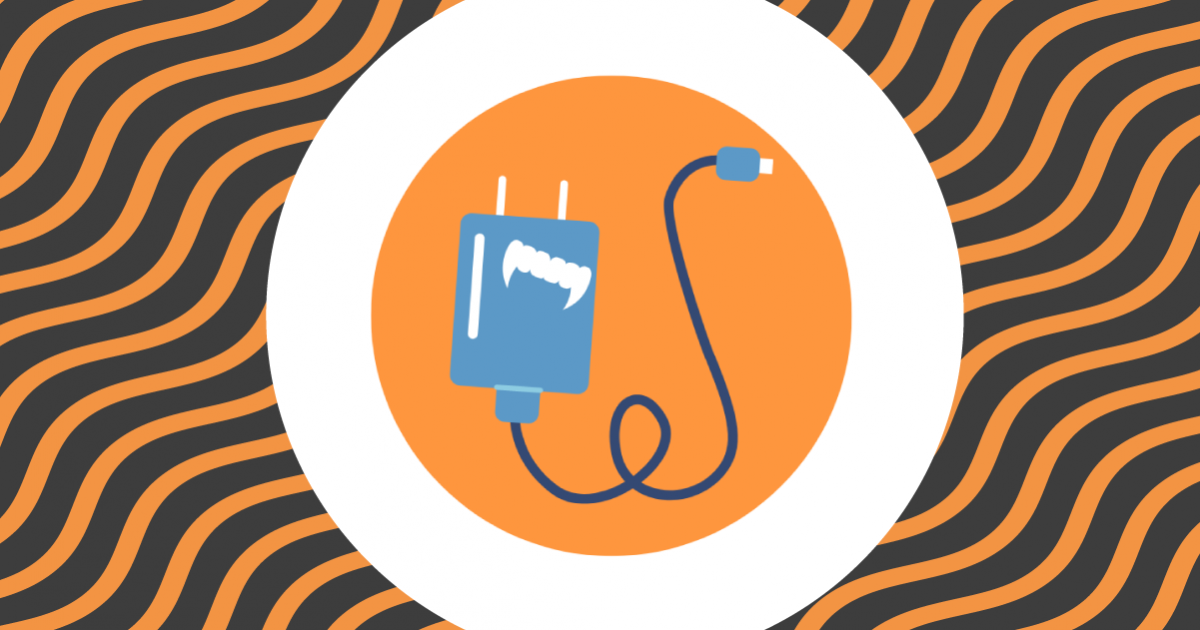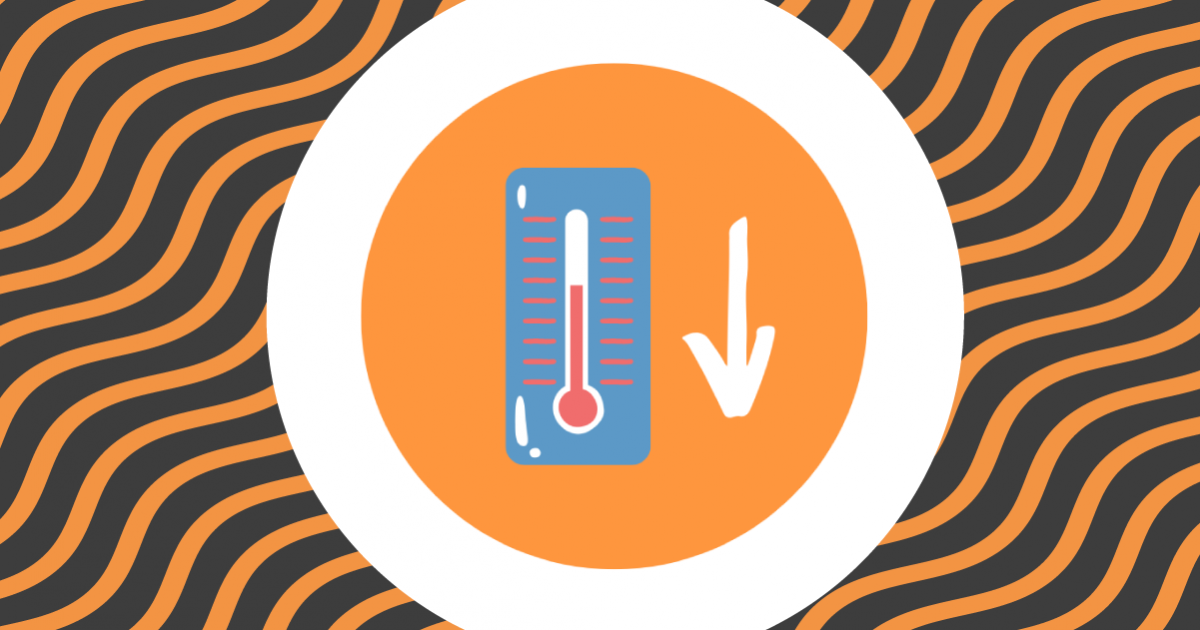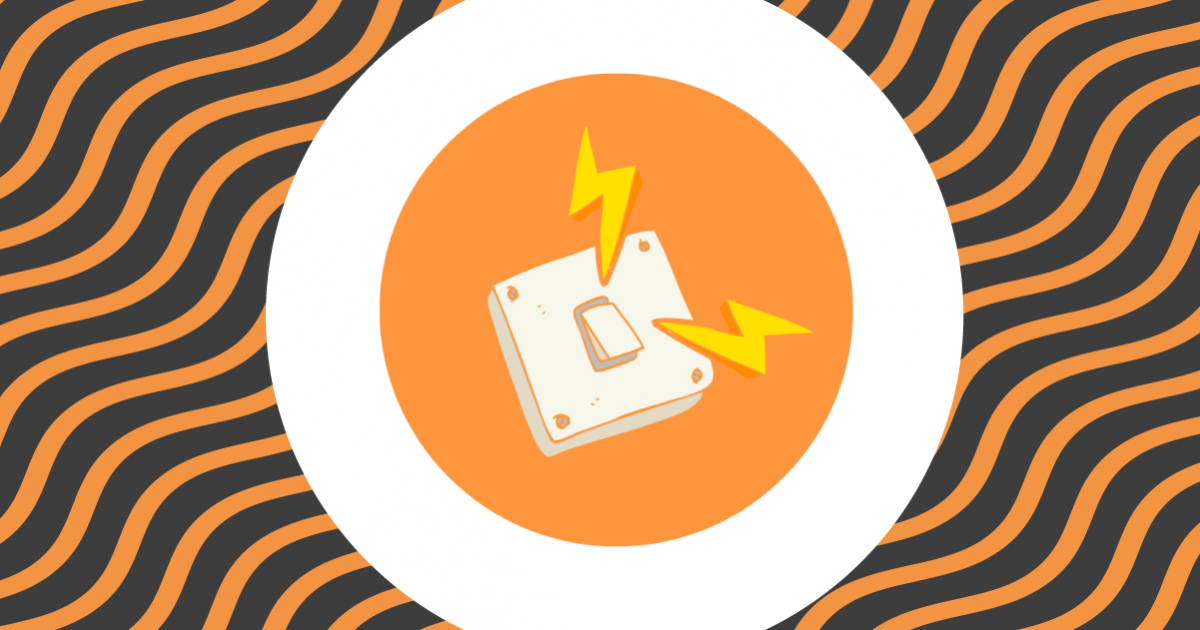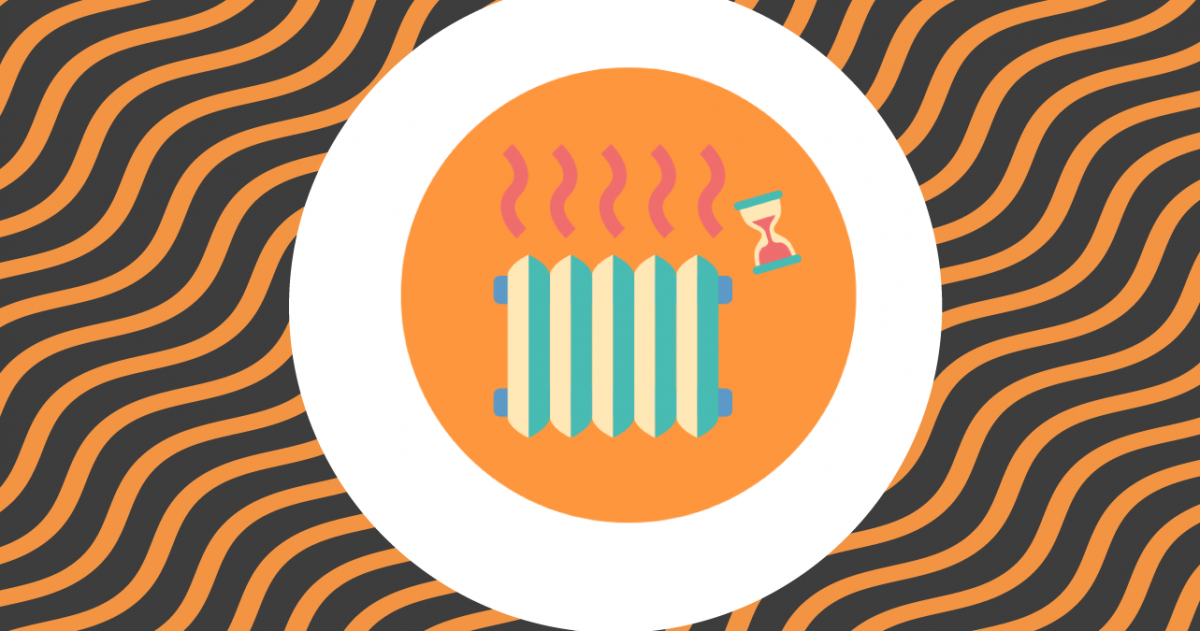Here are 5 energy saving myths debunked, and some tips on what actually saves energy.
- It's better to leave the heating on all day at a low temperature
- Vampire power will increase your energy bills
- Leave the light on 'cause flicking the light on and off uses too much power.
- Turning up your thermostat makes you warmer faster
- Wash smaller loads of laundry - it saves energy
*75% of UK adults care about the environment, according to The Office of National Statistics, so even if you're on one of our Unlimited Energy packages, you can keep an eye on your energy use to keep your carbon emissions down. About 20% of the UK’s carbon emissions come from households, according to the Energy Saving Trust, so why not do your bit?
It isn't more energy efficient to use your heating constantly, even if it sounds sensible. Heating the house when you need it is by far the better option.
There is a lot of debate, but the Energy Saving Trust (the experts!) recommend only turning on the heating when you need it. This is especially true if you don't own your property and aren't sure about your insulation situation. But even if you're a homeowner, heat loss through windows or walls makes heating all the time a bad idea!
It's a better idea to get insulation for your home if you can, but in the mean time being efficient with the heating is a good start.
Set your heating to come on when you're actually going to need it, e.g.
-
A bit when you're getting dressed
-
A bit when you get home in the evening
-
A bit midday if you're going to be in.
If you have a spare room or somewhere nobody goes often, you should be able to turn the radiator off and switch it back on when you need it to save even more energy. Keep the door to this room closed, though, so you don't lose heat into the cold zone.
The World Health Organisation says to keep your room temperature between 18 - 21 degrees. If you usually have it higher, bringing it down by 1 degree can use up to 10% less energy, and you probably won't feel the difference.
ENERGY SAVING MYTH 2: Vampire power used by phone chargers will increase your energy bills
Verdict: Uhhh...sort of true?

Okay, so there's some truth to this, and tons of misinformation too. A lot of sources say leaving phone chargers and other devices plugged in constantly uses a low level of energy - calling them energy vampires, or vampire power.
The truth is that this is an overstated waste of energy, and phone chargers don't seem to be the main culprit. It's true that chargers use a small amount of energy, but it really is a small amount.
Does it save energy to unplug your phone charger?
It takes about six chargers plugged in at once to use a measurable amount of energy, according to American website How to Geek.
Here in the UK, The Energy Saving Trust agree that phone chargers use a tiny amount of energy, making only a small energy saving over the year if you unplugged everything when you're not charging.
Do I need to unplug everything when I'm not using it?
The real energy vampires are appliances left on standby. Games consoles have gotten a lot of flack recently, but TVs are a more common problem.
The BBC has previously shared figures from British Gas saying that games consoles and microwaves on standby were the most expensive vampire devices, but these numbers are disputed. For example, all games consoles are under a voluntary agreement to meet EU standards for their maximum power use on standby, so the numbers from British Gas don't seem to add up.
While the numbers might not be 100%, The Energy Saving Trust agrees that turning appliances of all kinds off, rather than leaving them on standby, is a key way to reduce your electricity usage. The TV especially!
98% of people admit to leaving the TV on standby at all times, with many people thinking that the red button on the remote turns it off entirely. It doesn't. It just turns it to standby. Turn your TV off entirely when you're not in the house to make a super easy impact on your electricity use.
Of course you could also switch to a renewable energy deal to reduce your carbon footprint, and opt for Unlimited Energy to get rid of worries about big bills.
To save energy:
-
Beware of energy vampires, but don't let smartphones take all the blame for wasting energy.
-
Switch things off at the plug when you're not in the room. That little clock or red light might seem innocent, but it's a little more sinister than that! 🧛 And those tiny amounts of energy do make a small impact on your bills and carbon emissions over time.
This seems to be one of the most common energy saving myths. Even with old fashioned, super-inefficient incandescent bulbs (the ones that got really hot) this was never true. If you're leaving a room for more than a minute or two, turning the lights off has always been the way to use less energy.
Quickly flicking your light switch on and off quickly can damage your lightbulbs, and it's likely irritating for anybody else in the house, so it's still not a great idea.
The Energy Saving trust says that 11% of domestic energy is used on lighting, so changing your habits could make a difference to your carbon footprint and your energy bill.
To save even more energy, grab an LED bulb the next time a light goes out. They're the most energy efficient you can buy, so they're great for your bills and the planet. You can even get colour changing ones. That has nothing to do with energy saving, but they make unbeatable aesthetic mood lighting.
Turning your thermostat higher doesn't heat your house quicker. Your central heating will warm your house until it hits whatever temperature is on the thermostat. This is true whether you have it set to 20 degrees or 50 degrees. Your central heating system will pump out heat, using energy, until the air in the room meets the thermostat's temperature setting.
If you want to get to 20 degrees, setting your thermostat to 25 wouldn't get you there faster. Your heating system will just work away for longer, using more energy, to get to 25 degrees.
You could save a lot of energy on heating just by keeping your thermostat to the temperature you actually want 🤯
Your washing machine and tumble dryer use the most energy when they're heating water or air. So washing and drying smaller loads more often actually uses more energy. So where you can it's best to wash bigger loads of laundry less often.
This also means you have to sort and fold laundry less often, which is obviously another massive win.
To actually save energy on your laundry, try some of these instead:
-
Fill the washing machine to the right level. You should be able to fit a hand comfortably in the top of your drum of your machine. This means it's full, but your clothes can still move around to generate suds and get clean. Overfilled machines don't wash as well, and you might have to wash clothes again. That's a waste of energy and detergent. And time.
-
Get a laundry buddy. If your partner or housemate is on a similar schedule, why not wash your laundry together? The drum will always be full, you'll use less energy, and you won't need to wait for the machine to be free. Buy a couple of laundry nets or shove your pants in a pillowcase so there's no confusion over what's what. Sorted.
-
Wash at 30°, not 40°. This tiny change can use up to half as much energy, and your clothes will be just as clean. All detergents are now designed to defeat dirty at 30, if not even cooler temperatures. Using the eco setting on your machine will use even less energy. Eco cycles use less water, meaning less energy needed to heat it. If your clothes really need a clean - like your gym stuff or muddy festival gear - you can stick them on a different cycle, another cycle might be needed, but very rarely will you need a higher temperature. Day to day, an eco wash at 30 degrees is all you need.
-
Tumble dry on cool, even if it takes longer to get your clothes dry. Most of the energy a tumble dryer uses comes from heating the air, not spinning the drum. A longer, cooler cycle is better for the environment (and your clothes!)
Of course getting a renewable energy supplier also goes a long way towards supporting the environment!
Fancy more info on reducing energy use?
- Get a renewable energy deal
- Improve your home's EPC rating
- Save energy with short shower power
- How to keep the heat in and save energy in winter
- Find some easy ways to save energy at home
- Fix your energy bills with Unlimited Energy
- Check out our guide to sorting your utility bills
There's a lot of information out there, and you can't do everything all the time, but even choosing one change and sticking to it could cut your energy use and carbon emissions, lower your bills and leave you with a warm fuzzy glow.






